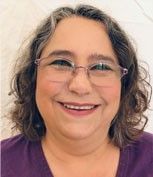
What is a Center of Excellence (COE)?
A Center of Excellence is a team of specialists who come together to provide high-quality care to patients with a specific disease using accepted best practices. It is common for medical facilities to seek COE status if they have a team working with a particular disease, such as Cancer, Diabetes, Alzheimer’s, or, of course, HCM.
The HCMA created the “HCMA Recognized Centers of Excellence” program in 2004. This program ensures that the services and procedures offered at recognized COEs align with current best practices for managing patients with HCM. Centers must use a team approach to care, including HCM specialist cardiologists, genetic counselors, imaging specialists, and more. In addition, a COE has up-to-date equipment and scanning protocols, with technicians trained to get the right angles during your testing.
The American Heart Association and the American College of Cardiologists support this model of care in their best practice guidelines for HCM, 2020.
For a list of centers, please visit our website at https://4hcm.org/center-of-excellence/. You can also see the criteria used in the review of these programs. We currently recognize COEs in the United States, but we can often recommend somewhere for you to go if you are in another country – please contact us for more information. The HCMA continues to grow new programs and evaluate them for COE status. We want you to have COE care near your home.
We also offer need-based travel grants to help people get the best care for HCM. Call us at 973-983-7429 and ask about the Lori Fund, or apply on our website. https://secure.4hcm.org/forms/lori-fund-scholarship The Lori Fund can reimburse you for gas, airfare, hotel, and food up to $600 annually to help you get to a Center of Excellence.
The post July is about COE Care at the HCMA appeared first on Hypertrophic Cardiomyopathy Association.


 Translate
Translate

